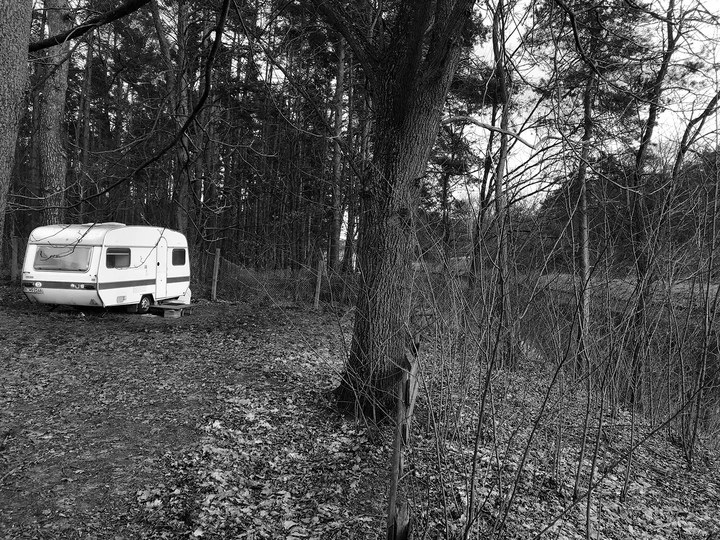practicing dirty theory

Juana Diaz
Samantha Grob
Costanza Rossi
(Santiago de Chile, 1987) I do architecture, art and research. I identify myself with the concept and word Chìxi (Cusicanqui, 2019). Color made of juxtaposed black and white dots that in the distance is a third color, which is created from the contradiction of two opposite colors and from that contradiction develops its power. Ch`xi refers to being identities composed of contradictory stains, which give us the power to think bilingually, to think by going to the differences, and not to assume ourselves as a homogeneity. I identify myself as a Latina, a current resident of Briesen (Mark), as a person who wants to share, to share caring, cleaning, repairing and cooking, among others. As a person who values conversations, communicating, listening, containing, being contained, and who is afraid of getting old alone. I have lived in a total of 6 different homes, most of the time in a two-parent nuclear household structure.
I studied architecture at the Universidad Diego Portales in Santiago, Chile. Later I specialized in exhibition design for museums and memorial spaces. Working for seven years in the field I developed a critical decolonial perspective to the narratives that are often repeated in these spaces. At the same time I studied a Master called Art in Context at the UdK, Berlin University of the Arts. In that space I focused on the critique of the housing market in terms of traditional housing spaces, and I also studied alternative living options. The result was the work "Feminist Living Formats. An artistic research on the socialization of reproductive labor". There, architecture, gender studies and a decolonial perspective intersect. With this project I started an autoethnographic process of unlearning (Spivak, 2012) architecture.
My work has been presented in four collective exhibitions and in March of this year I had my first solo exhibition at Espacio la Cochera, in Santiago. I won the Senatsverwaltung für Kultur und Europa fund this year.
My theme is the artistic exploration of feminist living spaces. Their main characteristics are that they are community projects that are horizontally organized and intend to reorder reproductive labor, which is often predefined along gender lines. The research cases are also examples of social plastic.
This proposal consists of the visual documentation of personal evolution in relation to feminist living spaces. This process begins with research conducted in 2020 and then continues in 2021 with the movement of a caravan to a land where a community lives in Brandenburg, Germany. This is an autoethnographic work in which I observe and participate. It is an exercise in which I make the private political, as encouraged by Galvåo (1933) and Federici (2013).
The place where I set up the caravan is located in the forest and has some pre-existing buildings, which we have been fitting out over the last few years. Here I recognize the resistance to the promise of "the new" (Azoulay, 2019). The focus is on the existing constructions, materials, tools, and knowledge that we have today. Reversing the situation of abandonment in which the existing constructions were found requires the active work of the inhabitants. It is a work of care in which it is necessary to clean, order, repair, and create movement in places that sometimes seem frozen in time. This also applies to soil improvement in order to be able to grow vegetables, for example. Deciding to face the challenges of inhabiting a place in disuse is, in turn, also a rejection of demolition and construction from "zero". It is to practice dirty theory and decide to work with dirt (Frichot, 2019).
Inspired by the theory of the commons, I identify layers that are still under development and analysis. For example, going about declaring my own values or improving the relationship of cooperation and responsibility between the people who live here, as well as towards the land and animals.